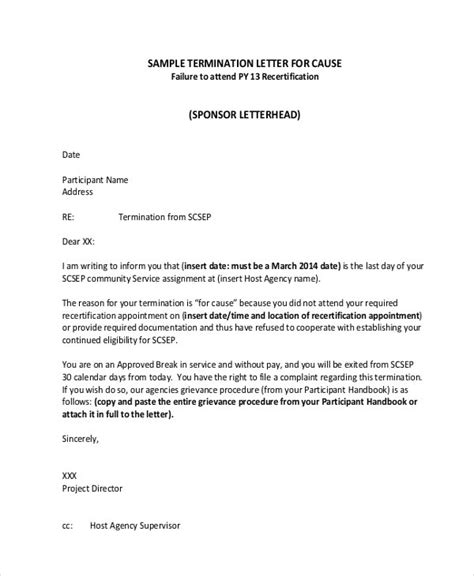Termination For Cause: Understanding The Concept

Termination for cause is a common concept in employment law that refers to the termination of an employee’s contract due to a specific violation of the terms of their employment. In simple terms, it means that an employee can be fired for a serious breach of their employment agreement, such as theft, harassment, or gross negligence. This article will provide a comprehensive guide to understanding the concept of termination for cause, including its definition, legal implications, and practical considerations for both employers and employees.
What is Termination for Cause?
Termination for cause is a legal term that refers to the termination of an employee’s contract due to a specific violation of the terms of their employment. This type of termination is usually reserved for serious breaches of contract, such as theft, harassment, or gross negligence. In most cases, the employer must provide clear evidence that the employee committed the offense, and the termination must be done in accordance with the employment contract and applicable laws.
Legal Implications of Termination for Cause
Termination for cause can have serious legal implications for both employers and employees. For the employer, it is important to ensure that the termination is done in accordance with the employment contract and applicable laws to avoid potential lawsuits or legal disputes. For the employee, termination for cause can result in the loss of their job, benefits, and potentially damage to their reputation.
Examples of Termination for Cause
Termination for cause can occur for a variety of reasons, including:
- Theft or embezzlement
- Harassment or discrimination
- Violation of company policies
- Gross negligence or incompetence
- Breach of confidentiality or privacy
- Intoxication or drug use on the job
Practical Considerations for Employers
Employers must follow certain guidelines when terminating an employee for cause. These guidelines include:
- Providing clear evidence of the employee’s violation
- Ensuring the termination is in accordance with the employment contract and applicable laws
- Providing notice to the employee, if required
- Informing the employee of their right to appeal the decision
- Ensuring the termination is done in a respectful and professional manner
Alternatives to Termination for Cause
Termination for cause should be a last resort for employers. In many cases, it may be more appropriate to consider alternative solutions, such as:
- Providing additional training or support
- Offering a performance improvement plan
- Transferring the employee to a different department or role
- Providing a warning or probationary period
Practical Considerations for Employees
Employees who are faced with termination for cause should consider the following:
- Reviewing their employment agreement to ensure that the termination is in accordance with the contract
- Seeking legal advice if they believe the termination is unjust or unlawful
- Appealing the decision, if possible
- Preparing for the financial and emotional impact of losing their job
- Exploring alternative employment opportunities
FAQs
Q: Can an employer terminate an employee without cause?
A: Yes, in most cases an employer can terminate an employee without cause, as long as they provide notice or pay in lieu of notice in accordance with the employment contract and applicable laws.
Q: Can an employee sue for wrongful termination for cause?
A: Yes, an employee can sue for wrongful termination for cause if they believe the termination was unjust or unlawful. However, the burden of proof is on the employee to provide evidence of the wrongful termination.
Q: Can an employee be terminated for cause without notice?
A: In some cases, an employee can be terminated for cause without notice, depending on the severity of the violation and the terms of the employment contract. However, the employer must still provide evidence of the violation and ensure that the termination is done in accordance with the law.
Conclusion
Termination for cause is a serious matter that can have significant legal and practical implications for both employers and employees. It is important for employers to follow the guidelines for termination for cause and consider alternative solutions before resorting to termination. For employees, it is important to understand their rights and seek legal advice if necessary. By following these guidelines, employers and employees can ensure a fair and respectful process for termination for cause.
